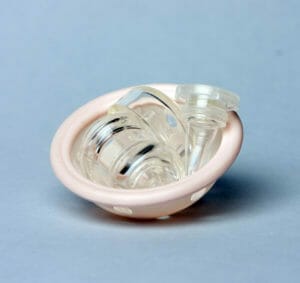Pregnancy is one of those things television makes look easy.
Boy and girl both swipe appropriately on Tinder. They meet in a musty stairwell after an Iron Maiden concert, drunk on overpriced beer and the sweet ambrosia of Bruce Dickinson’s voice. Maybe there’s a brief hello, followed by a precursory scan to see if who you’re hooking up with matches the Tinder profile, and then:
A few weeks later she finds his number in her phone and texts him the news. What happens after is anybody’s guess. Maybe he responds with the time honoured dodge: “new phone. Who dis?” Maybe they live happily ever after in heavy metal bliss.
But for the 12-13% of the population that struggle with either getting pregnant, or maintaining pregnancy, the story is a hell of a lot different. There’s a lot of pain and frustration involved with pregnancy, especially after a certain age, when fertility drops considerably. Add in factors like excess weight, too little body weight, tobacco use, and being over 40, and it’s a recipe for getting dogs and going on more vacations.
For those folks who prefer children and poverty to dogs and vacations, there’s always in-vitro.
The global in-vitro fertilization market size is expected to reach USD $36.2 billion by 2026, based on a new report by Grand View Research. It is projected to expand at a CAGR of 10.2% during the forecast period.
And that brings us to INVO Bioscience (IVOB.OTC), which announced today that it had received Institutional Review Board (IRB) approval to begin its planned clinical trial for its modified INVOcell system for achieving fertilization, implantation, embryo development, clinical pregnancy and live birth, after five-days of vaginal incubation.
Normal in-vitro involves taking several eggs from the woman’s body and mixing them with sperm in a lab. The fertilized eggs then go back into the woman’s uterus, and pregnancy happens if any of the embryos implant in the lining of the uterus. It has many steps, and often takes several months to complete the whole process. It sometimes works on the first try, but many people have to go through multiple rounds to get pregnant. There’s absolutely no guarantee if it’ll work at all, but it does improve your chances.

The retention device, along with the rest of the apparatus that make up INVO’s solution, is the mechanism by which the eggs are implanted. The study’s objective is to determine the efficacy, comfort and retention of the INVOcell with the retention device, and demonstrate that the five-day incubation practice works better than the standard three-day incubation period.
“Expansion of our label to 5-day continuous vaginal incubation is a key objective as we look to enhance the INVOcell procedure beyond its currently approved 3-day use and align with the current standards within the fertility industry. Now that we have begun recruitment, we look forward to the clinical sites commencing enrollment shortly,” said Steve Shum, CEO of INVO Bioscience.
The trial is a single arm, multicenter, open label trial being conducted at three clinical centers in the United States with each center enrolling 60 patients between the ages of 18-37.
—Joseph Morton


